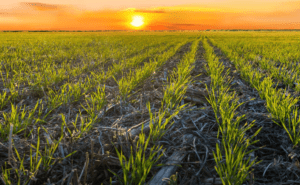Inspiring Story
Mr. Prasad is a progressive farmer who belongs to Sagipadu village, Rathnagirinagar, Kota Mandal, Andhra Pradesh, India. He owns 25 acres of land with sufficient water for irrigation. Despite being a mechanical engineer for a private company for a few years, his interest has been increasing in agriculture, as his father was an agriculture officer. He wanted to become an independent farmer, so he left his job and started learning farming methods under the guidance of Sri. Palekar. In his 12.5 acres of land, he cultivates bananas in 2 acres, palm with cocoa as an intercrop in 4 acres, and vegetables in 2 acres.
He wanted to become an independent farmer, so he left his job and started learning farming methods under the guidance of Sri. Palekar. In his 12.5 acres of land, he cultivates bananas in 2 acres, palm with cocoa as an intercrop in 4 acres, and vegetables in 2 acres.
Instead of big motors, he bought a power tiller and small implements. His farm is close to the hamlet, and there is plenty of labor available at his farm. His farm attracts many visitors because of his achievements and experience in a short period. During the year 2011, he started the Cow-based Agri Society, along with 120 farmers members.
From 2007 onwards, he focused more on organic farming instead of external inputs. He started cow-based organic farming in 2011.
He observed that poor soil conditions and water scarcity were the primary reasons for unprofitable agriculture, so he started farming based on Palekar principles.
Some principles of the Palekar system include no budget, such as jivamrita made from cow dung, urine, etc., mulching, and raising several crops.
To increase soil fertility, he decomposed farm waste and started collecting excess rainwater for his farm. In a year, he almost spent Rs. 30,000 in pitting. He believes that if the government provides financial benefits to the farmers, they will able to implement these policies.
To reduce evaporation losses, he adopted interventions like boosting soil fertility with organic carbon, micro-irrigation, and trenches for harvesting rainwater.
In the orchard, he built a jet instead of a drip irrigation system to water plants, and it also helps in sprinkling water on the leaf litter spread as mulch on the soil surface surrounding the plants for better decomposition.
To maximize the benefits from land, water, and labor, he has cultivated bananas and cocoa as intercrops in palm and coconut gardens. With these techniques, he started earning good money in the agriculture sector. His strategies not only reduce the cost of production but also organically enrich soil health.
In the future, he wants to obtain organic certification for his farm, produce veggies organically, and open retail outlets to sell organic products.


